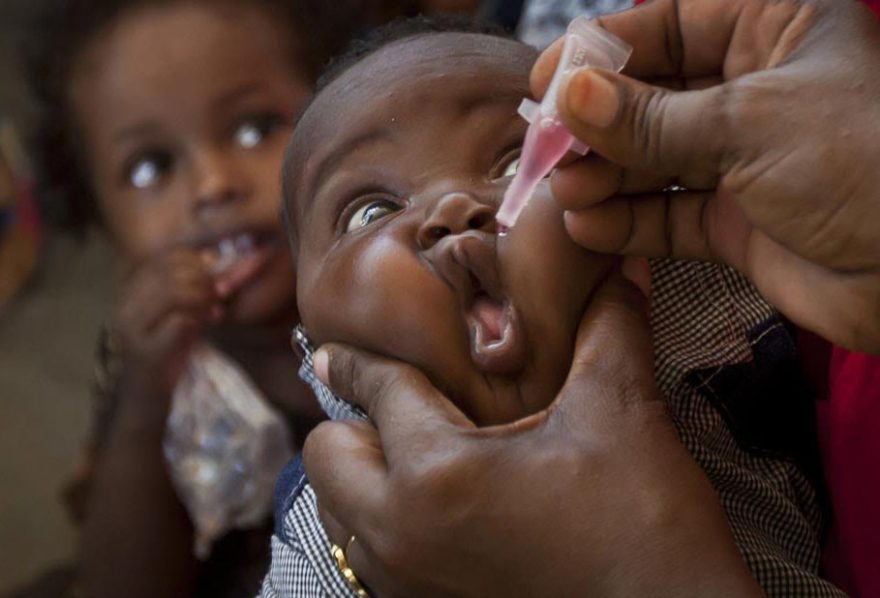
The inability of Nigeria to meet its national target of 90 per cent immunisation of children less than five years against killer diseases is raising fresh concerns among stakeholders.
According to the 2016 Multiple Indicators Cluster Survey/National Immunisation Survey Coverage (MICS/NICS), which captured the immunisation data routinely cited by experts in the country currently, 77 per cent of children aged 12 – 23 months in Nigeria have not received all the routine vaccinations as recommended by the national EPI schedule while 40 per cent of children in this age group did not receive any vaccinations.
This scary data amid the resurgence of some childhood diseases in the country has seen stakeholders working on how to strengthen leadership, management and coordination towards achieving better immunisation statistics.
Recall that diphtheria, which broke out in Nigeria earlier in the year, has killed about 600 people as of the middle of last month. Also, even though Nigeria was certified free of polio in 2020 by the World Health Organisation (WHO), 168 cases of the disease were reported in 2022.
To this end, the Nigerian Solidarity Support Fund (NSSF) is among organisations currently spearheading the crusade to ensure that Nigeria addresses the issue of vaccine hesitancy and upscales its routine immunisation statistics.
According to the Chief Executive Officer (CEO) of NSSF, Dr. Fejiro Chinye-Nwoke, ensuring that all children receive immunisations is a shared responsibility by public authorities, public health agencies, private health care providers, families and the entire community.
“The unsatisfactory levels of immunisation across Nigeria suggest that separate parties have not been able to work together effectively to meet that responsibility. Stronger leadership must be exercised at the federal, state and local levels and in the public and private sectors to build a comprehensive and collaborative primary care system that can improve the delivery of immunisation services,” Chinye-Nwoke said.
For the Director of Disease and Control Immunisation, National Primary Health Care Development Agency (NPHCDA), Dr. Bassey Okposen, routine immunisation programmes in Nigeria are robust and strong but still faced with challenges that affect leadership and coordination.
Okposen said: “It’s the basis on which other interventions are now being leveraged. The programme is also being leveraged by other sectors, where it is used to improve birth registrations across the country. One of the goals when the National Emergency Routine Immunisation Centre (NERIC) was established in 2017 was to strengthen leadership, coordination and accountability. It is a platform which we use to improve routine immunisation across the country, and where all stakeholders can gather. That is where the leadership and coordination of routine immunisation occurs and it has evolved also to the state and to the local council levels.
“However, as with all programmes, we have challenges and these affect leadership and coordination. Some of them include poor understanding of the immunisation space. Not everybody understands what immunisation really is all about. Even medical doctors at times can be challenged to really understand what immunisation is.
“Generally, NPHCDA is committed to strengthening leadership and coordination of routine immunisation, as a fulcrum to strengthen NPHC services and its access. And we continue to do that when we engage all the state leaderships, including state Primary Healthcare Boards and our state immunisation officers, with training and development of core skills to strengthen all these processes.”
A senior Manager at Clinton Health Access Initiative (CHAI), Dr. Kikelomo Lambo, noted that immunisation is a core function of health systems, and central to achieving universal health coverage.
“Our key pillars include equity in immunisation, immunisation across life course and local solutions to local challenges.
“We want to see a world where everyone, everywhere and at every age has full benefits from vaccines for good health and well-being. This is what we see when looking at immunisation and we cannot afford to undermine how important immunisation is to the public health space.
“To look at public health in general, we know that it has complex problems that need complex solutions. We don’t just have one stakeholder that plays within the public health space. If you ask a layman the ministry that is involved in public health, you will most likely hear the Ministry of Health in response. But there are different stakeholders that play different roles within our public health space.
“We have different factors that are actually situated outside our sphere of influence within the public health space, meaning that there are other sectors that have resources that we will rely on to achieve our immunisation goals. There’s a crucial part of this complex solution, which is getting all the actors involved, and not just the core public health actors but also actors outside the public health space to see that our public health challenges are addressed.
“We have policy integration and coordination. Looking at integration, we are seeing that it involves the interrelation of content of several sectors. For coordination, it is the process to realise integration of those who are in the process of planning and making decisions. Hence, there’s a need for coordination to achieve our public health goals. There is a need for a common vision that is shared across stakeholders within each of these pillars and there needs to be a formal coordination mechanism where we implement and agree on objectives, manage the division of tasks and responsibilities,” Lambo said.
The Executive Secretary, Ogun State Primary Health Care Development Board, Dr. Elijah Ogunsola, while highlighting some of the issues affecting routine immunisation in Nigeria, said: “For us in Ogun State, immunisation can be divided into two sides – the service provision and the demand. From the demand side, there are lots of problems. We have a lot of our mothers who start very well with PCG, the first immunisation, and OPV Zero, but along the line, they are lost.
“We have a lot of dropouts coming in for vaccination. And one of the things that have been able to accede to this is increasing urbanisation. When we started initially, the majority of our settlements were close to the health facility. But now, there is a lot of pressure. A lot of people are moving from Lagos to Ogun State because of the expenses in Lagos. A lot of new settlements are coming up and the health system is not able to respond to the rate at which urbanisation is growing. The distance between the settlements and health facilities is another factor affecting immunisation. A lot of clients are lost outside the radius of health facilities.
“Due to the increasing rate of urbanisation and settlements springing up every time, it is also very difficult for the health system to cope in terms of human resources. It is pretty difficult and the issue is not only in Nigeria. I heard that in the U.S., the health workers are going on a three-day strike. So, it’s a global problem. But it’s one of the things affecting immunisation service delivery in Ogun State.
“What is also causing problems are the misconceptions on vaccination. In September, we were meant to introduce HPV, which is for girls around nine to 14, and you could see that misconception on vaccines was a major problem affecting routine immunisation.”
He further stressed: “There are some tribes that in their culture, they don’t take vaccination, and every two years, they come down with measles outbreaks in their community. So, misconceptions, increasing rate of urbanisation and lack of human resources to cope with this issue are some of the challenges presently affecting immunisation services in Nigeria.”
Programme Lead, West African Coordination Centre of Africa (CDC), Dr. Olayinka Stephen Ilesanmi, expressed the view that to drive innovation for vaccination in Africa, there was a need to upscale vaccine production in the first place.
He noted that at the moment in Africa, the production of vaccines on the continent was just about one per cent, adding that it was being done in countries like Morocco, Tunisia, South Africa, Senegal and Egypt.
“What we are thinking of doing in Africa CDC is, by the year 2040, we want the production of vaccines on the continent to be upscaled to about 60 per cent. There are a lot of partnerships and engagements for that. Just like when we started COVID-19 vaccinations, we were able to get a lot of partners to join us, like the Bill and Melinda Gates Foundation, the World Bank, African Development Bank and several other partners. Now, we are also trying to get their involvement in ensuring that we have more financial support to help and boost vaccine production in Africa,” he said.
Ilesanmi stated that there was a need to invest in research and advocacy, stressing that “once these two things are met, I am sure that most of the problems we are facing will be solved.
He added: “We are also trying to upscale some innovations. Recently, in some countries, drones have been utilised in vaccine distribution. Some of these innovations have been carried out in a few countries in Africa – Rwanda, Ghana and some other few places. We are trying to learn more from countries that have been able to do this, and also ensure that more countries are adopting innovations in spreading vaccines and getting things done better than before.
“To address the issue of vaccine hesitancy, there is a need to involve a variety of stakeholders. If we continue in the same manner that we have been doing our advocacy, I am sure that hesitancy will stay with us. We need to bring in innovative ways. Some of the stakeholders we need to involve are the religious leaders, the elderly people in the community; generally, people that the communities respect and trust.”






